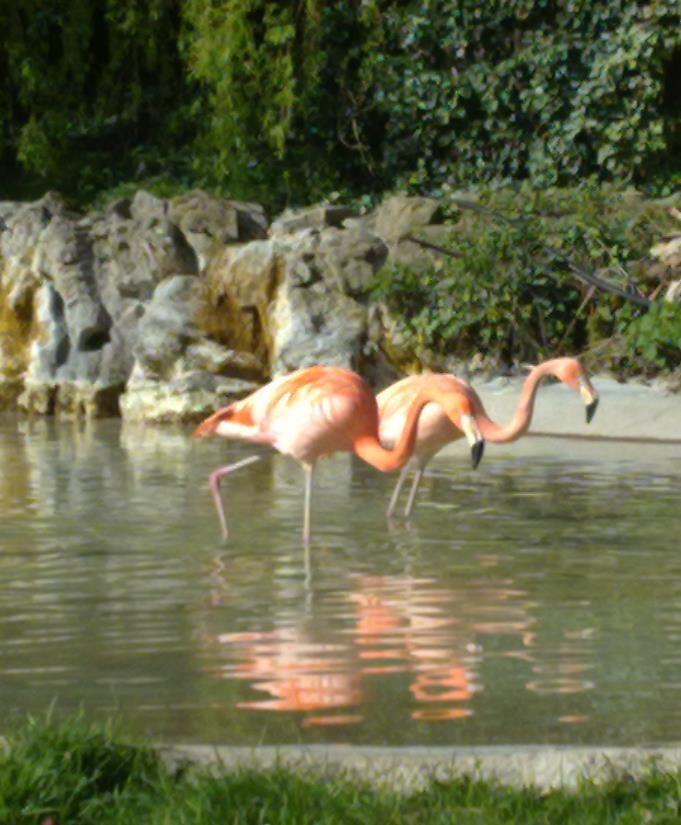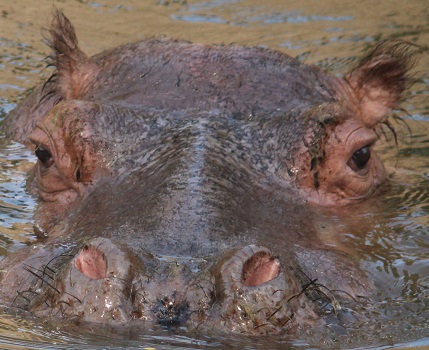Study birds in the wild and in captivity with this unique course.
Is it your dream to work with birds? Falcons, hawks, parrots, flamingos. If you are passionate about birds, then why not get started? This course provides you with a detailed insight into ornithology, wildlife management and zookeeping. The perfect combination for working in an industry centred around avian species!
 Study the evolution of birds, understand how they have adapted and developed to their environments.
Study the evolution of birds, understand how they have adapted and developed to their environments.
- Learn about the ecology of wildlife and how this can be managed.
- Learn about the needs and habitat requirements of wildlife.
- Learn about keeping animals in captivity - from the design of enclosures to their physical needs and psychological wellbeing.
The Proficiency Award In Ornithology, Zookeeping And Wildlife Management is an excellent starting point if you would like to work in fields such as -
- zoo keeping,
- safari parks,
- wildfowl parks,
- petting zoos,
- falconry centres,
- nature parks,
- conservation,
- pet shops,
- bird of prey centres,
- journalism, writing about birds,
- research.
COURSE STRUCTURE AND CONTENT
Course Duration: 500 hours of self-paced study.
Start Date: Start at any time - study at a pace that suits you, and with full tutor support for the duration of your studies.
Content: Study three Core Modules and a Workplace Project.
THE CORE MODULES
The three Core Modules are summarised, below.
Click on the module titles below to learn more about each.
Ornithology BEN102
This is a 9 lesson module which is concerned with the classification and biology of birds. Students will study the classifications of different orders of birds and learn about their different characteristics. They will then go on to learn about the biology and anatomy of birds, including the physical attributes and organs, their internal biology and systems, behaviours, migration, and habits. The module then turns to look at specific types of birds, with lessons on land birds, giant and long legged birds, seabirds, birds of prey, and so on. The module concludes with a lesson on how you can attract, feed, and keep birds.
Wildlife Management BEN205
 Wildlife Management is a 9 lesson module which aims to develop a student’s knowledge of the principles of wildlife ecology and management. The module looks at the needs of wildlife and the factors which contribute to making a good habitat. Specific habitat types are considered – scrubland, tropical, temperate, desert, and so on. Students will learn about population dynamics and how they adapt to their environment. The second half of the module focuses on wildlife census, management techniques than can be employed and the legal aspects of wildlife law and administration. The module concludes with a case study and PBL project where students can use the knowledge gained on the course and demonstrate their understanding of the subject matter.
Wildlife Management is a 9 lesson module which aims to develop a student’s knowledge of the principles of wildlife ecology and management. The module looks at the needs of wildlife and the factors which contribute to making a good habitat. Specific habitat types are considered – scrubland, tropical, temperate, desert, and so on. Students will learn about population dynamics and how they adapt to their environment. The second half of the module focuses on wildlife census, management techniques than can be employed and the legal aspects of wildlife law and administration. The module concludes with a case study and PBL project where students can use the knowledge gained on the course and demonstrate their understanding of the subject matter.
Zoo Keeping BEN208
This 9 lesson module is looks at the keeping of animals in captivity, in zoos, safari parks and the like. Students will learn about how zoos have developed and how their designs have changed. Context is provided by considering what the functions of zoos are, the environmental requirements of captive animals balanced against the requirements to provide habitat and enclosure designs which also enable effective human viewing of specimens. The module includes lessons which look at animal behaviours, interactions with zoo keepers, the health and nutrition requirements of captive animals as well as the health and safety principles which need to be followed. The module concludes with a PBL project on Environmental Enrichment, where students will be able to consider and apply what they have learned through their studies.
WORKPLACE PROJECT
To complete this qualification, you are also required to complete a workplace project lasting 200 hours.
There are 4 options available to you to satisfy this requirement. The options will be different dependent upon whether or not you currently work within the industry. The project can be work experience, voluntary experience, a project you carry out, other training you have already undertaken and there are other options. Don’t worry if you are not sure how to proceed at this stage, as your tutor will be there to discuss how to proceed and help you every step of the way.
HOW THE COURSE WORKS
You can start the course at any time.
It is studied by distance learning, so you can study in the comfort of your own home. But this doesn't mean you are all alone in your studies. Our highly qualified and friendly tutors are there to help you every step of the way. If you have any questions at all, they are always happy to help.
HOW THE PROFICIENCY AWARD IS ASSESSED
The Proficiency Award In Ornithology, Zookeeping And Wildlife Management requires 500 hours of study. It is made up of three 100 hour modules and a workplace project.
To pass the course –
- Pass all assignments on the three 100 hour modules. There will be an assignment at the end of each lesson to submit to your tutor for marking and feedback.
- Pass three examinations – one on each module. These are usually taken at the end of the module and can be arranged at a time and location to suit you.
- Complete a Workplace Project. The project should last around 200 hours. There are four options available to you to satisfy this requirement. Don’t worry if you are not sure at this stage, your tutor will be there to help you every step of the way. This includes evidence of work experience or other studies or workshops, a research project or completion of Workshop I.
Why Study with ACS?
Design your own learning pathway.
Study at your own pace, from anywhere, at any time.
Receive prompt, expert support from our team of committed and friendly tutors.
Your learning is our priority. We are flexible and adaptable to meet your educational needs!
Enrolling is easy - just go to the top of this page and select your study method and payment option.
If you have any questions about studying with ACS, or want to know more about any of our courses, get in touch with our specialist tutors today. They will be happy to answer your questions and look at different study options to fit in with your goals.